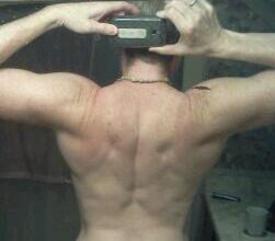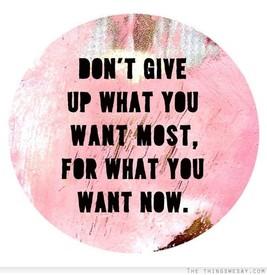Weight gain if I eat over 1200 calories

amirahdaboss
Posts: 921 Member
Hi all!
I've noticed that in my past year or so of dieting, whenever I eat over 1200 calories, I gain weight. Meanwhile, I read on here that people are losing weight eating 1800-2000 calories. I don't really understand how it works, and I'm confused as to how that works lol. I'm 5,6 and about 145 pounds or so. Anybody know why this happens to me?
I've noticed that in my past year or so of dieting, whenever I eat over 1200 calories, I gain weight. Meanwhile, I read on here that people are losing weight eating 1800-2000 calories. I don't really understand how it works, and I'm confused as to how that works lol. I'm 5,6 and about 145 pounds or so. Anybody know why this happens to me?
0
Replies
-
Hi all!
I've noticed that in my past year or so of dieting, whenever I eat over 1200 calories, I gain weight. Meanwhile, I read on here that people are losing weight eating 1800-2000 calories. I don't really understand how it works, and I'm confused as to how that works lol. I'm 5,6 and about 145 pounds or so. Anybody know why this happens to me?
Well first what method are you using to determine how many calories you are eating per day and do you stick with that method over long term periods such as over a month?0 -
I don't think you are accurately measuring your food if you're gaining weight on 1200 calories a day.0
-
Seems to me you're already in the healthy weight range for your age and height. Why do you want to change and by how much?0
-
Based on your diary, if the last week is how it usually is, you have days eating about 200 calories below your goal, and then days eating hundreds of calories over your goal. If this is what you mean, eating over 1200, of course it is not working
 Set yourself a realistic goal, for your height and age I would not set this below 1600 or so, unless you are literally in bed all day, and aim for this number more or less every day. 0
Set yourself a realistic goal, for your height and age I would not set this below 1600 or so, unless you are literally in bed all day, and aim for this number more or less every day. 0 -
i doubt your actually calculating your calories right. Plus having calories from dominos and cupcakes is not the way to do it lol0
-
Your logging does not seem to be accurate here's one entry I would question:
Homemade - Philly Cheese Steak Sandwich, 1.33 sandwich 367 calories - what bread was used, how much cheese was used, what did you cook it in and if I can eat 1.33 Philly cheese steaks for 367 calories where do I find these???
Weigh your food, log your food accurately stay away from other peoples recipe entries0 -
Inaccurate logging is very likely the issue.
But, also... this: http://www.myfitnesspal.com/topics/show/993576-why-you-gain-weight-if-you-eat-more-than-your-cut
"Weight" gain is not always fat gain. How long do you actually try to eat over 1200 calories (assuming you are logging accurately when you do) before determining that you are gaining real weight?0 -
23.4 is your BMI which sets you slightly high in the "normal" category but I have to agree with people here. Remember that it is about a balance. Maybe you are trying to lose a slight belly or muffin top but 1200 calories is not typically going to make you gain weight unless you are having binge and fasting periods.
http://healthyeating.sfgate.com/average-daily-calorie-intake-women-5067.html
There are literally thousands of website pages devoted towards caloric intake, weight management/maintenance and forums with threads from healthcare professionals that give out free, accurate and healthy advice about women who are looking to lose weight, be physically active and/or maintain the weight they are currently.
hope this is helpful
i say start being more conscious of your foods and portions and being more realistic with your measurements/intake
If i eat 800 calories today on a calculator i will assume that i have had anywhere from 900-1000 realistically because it is hard to measure exact caloric intake each day and i underestimate my physical activity
if the calculator says i burned 500 calories during a workout i assume it was more like 450
That is just me personally. overestimating what i eat makes me tighten my portions and keep better control over things like carbs/sodium/fat and underestimating my exercise makes me work harder. 5 minutes of workout time does not qualify as 10 minutes on my logs (i dont even log 5 minutes because i feel it is negligible for me with underestimating) but im the same way with higher durations. Make sure you are realistic about your exercise and food is all i am saying. overestimating your workout and underestimating your intake is a bad habit.
goodluck0 -
Yeah... If you eat over 1200 cals (like 2000 cals over...)... You may gain weight if not exercising to make up.0
-
Over what time scale are you experiencing these weight gains?
When you increase your calories after eating at a deficit - especially when it's a big deficit - your body stores more glycogen. Glycogen is stored along with water, so you can see a jump in scale weight *but it's not fat* and it doesn't mean you're eating at a surplus. You can see this gain in water + glycogen even if you're still eating at a deficit.
You need to keep on eating at the higher number of calories until your body's finished with the glycogen storage, at that point you stop gaining weight and your weight starts to go down again slowly. During this time you're still losing fat, even if you're seeing a gain on the scale, it's water+ glycogen weight, you will still be losing fat if you're still eating at a deficit.
Glycogen+ water gains from eating more are not to be feared... the extra glycogen should give you more energy, and it's not fat, and it's not harmful to you in any way. And the fat loss doesn't stop when you see these water+ glycogen gains, it's just the scale won't show it because you've gained e.g. 2lb water+glycogen and lost 0.5lb fat, on the scale you see that as 1.5lb weight gain.
Fat gain does not happen quickly. If you're really in a surplus it'll take 2-3 weeks to gain even just a couple of pounds of fat. Maybe even longer than that. So you need to look at the long term trend, and eat the higher number of calories for at least 2-3 weeks to see if you're really gaining slowly and steadily (as what happens in fat gains) or if you gain a few lbs in a few days followed by starting to slowly lose weight again (which is what happens with water/glycogen weight gain when you're still at a deficit)0 -
Over what time scale are you experiencing these weight gains?
When you increase your calories after eating at a deficit - especially when it's a big deficit - your body stores more glycogen. Glycogen is stored along with water, so you can see a jump in scale weight *but it's not fat* and it doesn't mean you're eating at a surplus. You can see this gain in water + glycogen even if you're still eating at a deficit.
You need to keep on eating at the higher number of calories until your body's finished with the glycogen storage, at that point you stop gaining weight and your weight starts to go down again slowly. During this time you're still losing fat, even if you're seeing a gain on the scale, it's water+ glycogen weight, you will still be losing fat if you're still eating at a deficit.
Glycogen+ water gains from eating more are not to be feared... the extra glycogen should give you more energy, and it's not fat, and it's not harmful to you in any way. And the fat loss doesn't stop when you see these water+ glycogen gains, it's just the scale won't show it because you've gained e.g. 2lb water+glycogen and lost 0.5lb fat, on the scale you see that as 1.5lb weight gain.
Fat gain does not happen quickly. If you're really in a surplus it'll take 2-3 weeks to gain even just a couple of pounds of fat. Maybe even longer than that. So you need to look at the long term trend, and eat the higher number of calories for at least 2-3 weeks to see if you're really gaining slowly and steadily (as what happens in fat gains) or if you gain a few lbs in a few days followed by starting to slowly lose weight again (which is what happens with water/glycogen weight gain when you're still at a deficit)
thanks for pointing that out to her. i had forgotten about the potential that it is water weight
I keep forgetting to remind people that some weight gain is just water weight coming back through water retention in high sodium diets sometimes. hooray for pros0 -
Also, it makes a huge difference how you log your exercise. I never lost weight with mfp until I invested in a heart rate monitor.0
-
Over what time scale are you experiencing these weight gains?
When you increase your calories after eating at a deficit - especially when it's a big deficit - your body stores more glycogen. Glycogen is stored along with water, so you can see a jump in scale weight *but it's not fat* and it doesn't mean you're eating at a surplus. You can see this gain in water + glycogen even if you're still eating at a deficit.
You need to keep on eating at the higher number of calories until your body's finished with the glycogen storage, at that point you stop gaining weight and your weight starts to go down again slowly. During this time you're still losing fat, even if you're seeing a gain on the scale, it's water+ glycogen weight, you will still be losing fat if you're still eating at a deficit.
Glycogen+ water gains from eating more are not to be feared... the extra glycogen should give you more energy, and it's not fat, and it's not harmful to you in any way. And the fat loss doesn't stop when you see these water+ glycogen gains, it's just the scale won't show it because you've gained e.g. 2lb water+glycogen and lost 0.5lb fat, on the scale you see that as 1.5lb weight gain.
Fat gain does not happen quickly. If you're really in a surplus it'll take 2-3 weeks to gain even just a couple of pounds of fat. Maybe even longer than that. So you need to look at the long term trend, and eat the higher number of calories for at least 2-3 weeks to see if you're really gaining slowly and steadily (as what happens in fat gains) or if you gain a few lbs in a few days followed by starting to slowly lose weight again (which is what happens with water/glycogen weight gain when you're still at a deficit)
100% this, plus inaccurate logging.0 -
You can only eat white meat, eggs and veg, fruit if you want to lose weight.
You must eat lots of protein to burn fat 120 g. of protein a day0 -
This content has been removed.
-
You can only eat white meat, eggs and veg, fruit if you want to lose weight.
You must eat lots of protein to burn fat 120 g. of protein a day
What? :huh:0 -
lolwut?You can only eat white meat, eggs and veg, fruit if you want to lose weight.
You must eat lots of protein to burn fat 120 g. of protein a day0 -
You can only eat white meat, eggs and veg, fruit if you want to lose weight.
You must eat lots of protein to burn fat 120 g. of protein a day
UHM NO.
WRONG WRONG.0 -
You aren't being accurate somewhere because if you were really eating only 1200 calories you would be losing TOO much weight. With 20 pounds to go, you should should for between .5 lbs per week and 1 lb per week. Your calories would be between 1600 and 1700.
The only way to be accurate is to get a food scale and be 100% honest with what you eat.0 -
You can only eat white meat, eggs and veg, fruit if you want to lose weight.
You must eat lots of protein to burn fat 120 g. of protein a day
:laugh: :laugh: :laugh: :laugh: :laugh: :laugh:
:huh: No.0 -
You can only eat white meat, eggs and veg, fruit if you want to lose weight.
You must eat lots of protein to burn fat 120 g. of protein a day
Calories in - Calories out. I definitely advocate eating healthy, but cutting out so much food that you love to eat will make you want to binge, which will drive you over your calorie goals. I would advocate, however, cutting back on so many of the foods that have tons of calories and very little nutritional value. Does this mean that you can't have pizza or cupcakes? No. But if eat stuff that makes you full for less calories, you might be more likely to not be hungry so much that you splurge so often.0 -
i doubt your actually calculating your calories right. Plus having calories from dominos and cupcakes is not the way to do it lol
You can eat WHATEVER you want as long as it fits in your calories.0 -
being this wrong should just hurt. It should absolutely cause physical pain.You can only eat white meat, eggs and veg, fruit if you want to lose weight.
You must eat lots of protein to burn fat 120 g. of protein a day0 -
You can only eat white meat, eggs and veg, fruit if you want to lose weight.
You must eat lots of protein to burn fat 120 g. of protein a day
Oh crap, must be why I haven't lost any weight then.
...0 -
Consistency is the key to losing and maintaining. Allowing yourself a cheat day here and there is okay but the bulk of your diet needs to be fresh veggies, lean protein, and healthy carbs. Your body doesn't know what to expect nutrition wise each day and you are probably retaining fluid too with the types of food that are in your diary. I agree with some other posts before me that are wondering about your accuracy in calculating your caloric intake as far as weighing, measuring and being totally honest about what you are eating.
Get your measurements in check
Drop the snacky foods full of sodium and carbs
Be consistent0 -
same here. We've been doing this all wrong.You can only eat white meat, eggs and veg, fruit if you want to lose weight.
You must eat lots of protein to burn fat 120 g. of protein a day
Oh crap, must be why I haven't lost any weight then.
...0 -
same here. We've been doing this all wrong.You can only eat white meat, eggs and veg, fruit if you want to lose weight.
You must eat lots of protein to burn fat 120 g. of protein a day
Oh crap, must be why I haven't lost any weight then.
...
LOL ^^ 153 lbs lost. Love it! Way to go!0 -
Hi all!
I've noticed that in my past year or so of dieting, whenever I eat over 1200 calories, I gain weight. Meanwhile, I read on here that people are losing weight eating 1800-2000 calories. I don't really understand how it works, and I'm confused as to how that works lol. I'm 5,6 and about 145 pounds or so. Anybody know why this happens to me?
With all due respect, I think you are under estimating your calorie intake. I am 4' 11" and a little bit, past my mid sixties and have lost 50 pounds eating 1200 calories. I am by no means special and I think that if you eat 1200 calories at your height and weight, you should lose also.
Also, if we assume for a moment that you really gain weight if you eat more than 1200 calories, why do you do it so often ? You eat too many cookies, sweets, candy and white bread and not enough protein, fruit and vegetables. Of course if you would eat 1200 calories even that would allow you to lose weight. You'd not be very healthy, but you would lose.
Make sure you weigh and log everything correctly and maybe make some changes towards better health.0 -
I replied to the wrong string...it looks like there is no delete button.0
-
You can only eat white meat, eggs and veg, fruit if you want to lose weight.
You must eat lots of protein to burn fat 120 g. of protein a day
^FALSE.
I lost 40lbs eating calories from dominos and cupcakes. ANYWAY. . . figure out how many calories your body actually uses to maintain your current weight and reduce that number by a little bit. At your weight, half a pound a week should be sufficient. You don't need to starve yourself on 1200 calories to lose weight. Get a scale and weigh your food and increase your calories to a realistic number.0
This discussion has been closed.
Categories
- All Categories
- 1.4M Health, Wellness and Goals
- 398.2K Introduce Yourself
- 44.7K Getting Started
- 261K Health and Weight Loss
- 176.4K Food and Nutrition
- 47.7K Recipes
- 233K Fitness and Exercise
- 462 Sleep, Mindfulness and Overall Wellness
- 6.5K Goal: Maintaining Weight
- 8.7K Goal: Gaining Weight and Body Building
- 153.5K Motivation and Support
- 8.4K Challenges
- 1.4K Debate Club
- 96.5K Chit-Chat
- 2.6K Fun and Games
- 4.8K MyFitnessPal Information
- 13 News and Announcements
- 21 MyFitnessPal Academy
- 1.6K Feature Suggestions and Ideas
- 3.2K MyFitnessPal Tech Support Questions




















